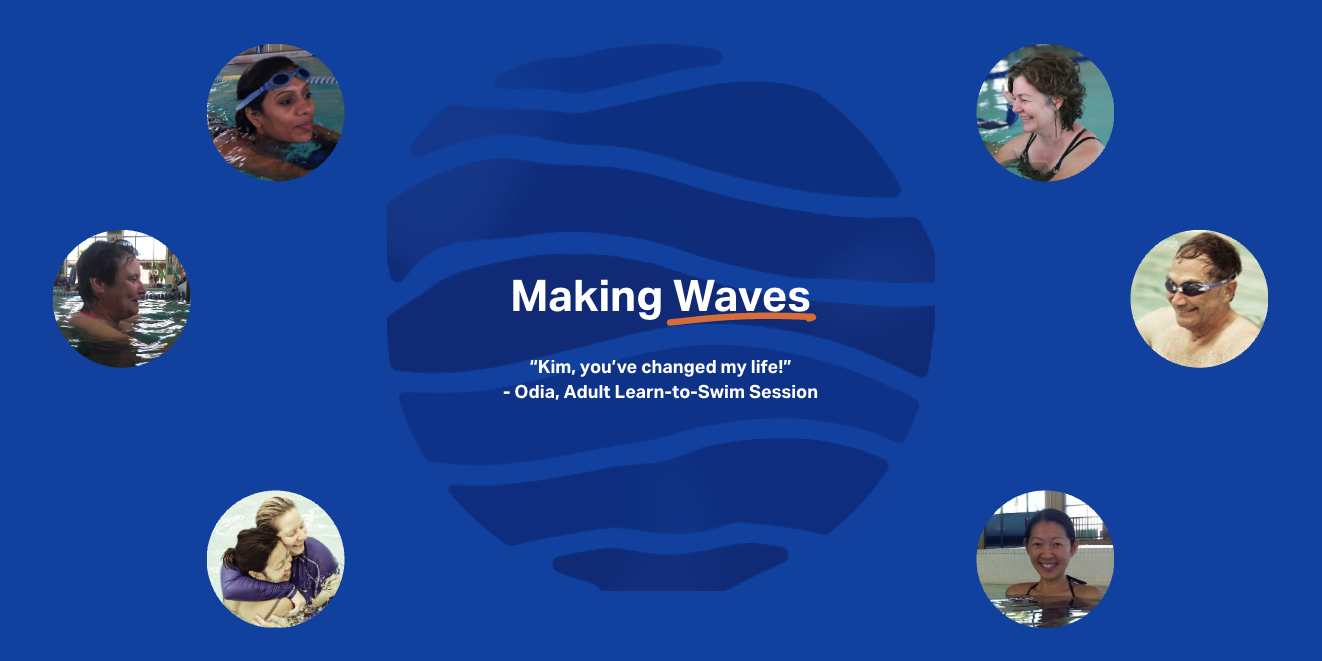When Mom Doesn’t Know How to Swim
Originally written for BonBonBreak in May, 2016
Last updated October 2024
While recently shopping for a baby shower gift, I met a woman who was pregnant with her first child. I could tell she was gonna be a helicopter mom just by looking at her. I guess since we made eye contact, she felt like I was the perfect person to share her woes about shopping for a car seat – looking at reviews, scanning message boards online, creating a spreadsheet to thoroughly analyze every aspect of each car seat, as to ensure her future child’s safety. I nodded.
She commented on my ‘Face in Water’ trucker hat and I told her I’m a private swim instructor and that I am passionate about water safety. As soon as I said ‘swim,’ I knew. I saw in her face that she didn’t know how. She looked at me sadly, then went into great detail about a traumatic experience she had as a child. I listened to her story.
She told me it was embarrassing and that she hadn’t thought about that moment in a long time. And that somehow it felt good to tell me about it. I told her it was okay and that a lot of people feel the same way. As I see it, we were supposed to run into each other since this topic has become my life’s work and passion. I help individuals overcome fear and create a healthy relationship with the water. I shared a statistic with the mom-to-be:
If a parent does not know how to swim, there is only a 19% chance that a child in that household will learn how to swim. -USA Swimming Foundation
She switched into Google-every-topic-to-death Mom and told me about all of the research she plans to do and how it’s not really necessary to learn how to swim because she never did and she’s perfectly fine. I shook my head.
Every day, I talk to intelligent, healthy-minded mothers about the safety and well-being of their children. These women know everything about anything. The problem-solving, multi-tasking super moms juggle careers, families, and social lives, raise chickens for fresh eggs and make organic fruit smoothies. They do what is healthy and safe for the family, or at least healthier and safer than the alternative. But when it comes to water safety, I see these same sensible role models protecting their little ones from getting water in their eyes (it’s just water!) and trusting blow up floaties to keep them alive. They just don’t know.
I imagine the woman teaching her child to cross the street. I doubt it will go down like this, “Don’t cross the street because you’ll get hit by a car and die.” I’m sure she will say, “Crossing the street can be dangerous, so this is how we do it safely…” Then they will practice over and over. And over and over. And over and over. We learn how to cross a street because it’s a tool for survival. Why is it any different around a pool, lake, or any body of water? I hear adults tell kids that if they go in the water they’ll drown because they don’t know how to swim. Going near water needs to be treated like crossing a street – both can be very dangerous, so we must approach them safely and know how to survive.
In 2017 I spoke at Prevcon, the Safe Kids Worldwide Conference, on this topic. I was shocked at how little information there is out there for parents. There is so much to think and worry about concerning the safety of children and sometimes the topic of water involves scare tactics and negative language. I want to change this culture and do away with the fear mongering surrounding swimming by educating parents and caregivers. I've designed the 'Teaching a Healthy Respect for the Water' Mini-Course as a guide to empowering the entire family in and around the water. Topics include safety in and around the water, drowning prevention, and my specialty – learning to swim. By sharing over 25 years of swimming and water safety tricks, I hope to inspire aquatic health for you and your loved ones.
Join the discussion by thinking about your unique relationship with water and telling your story. Do you have a healthy, comfortable relationship with water? Can you put your face in the water? How does that affect your life? Share your story with us.





